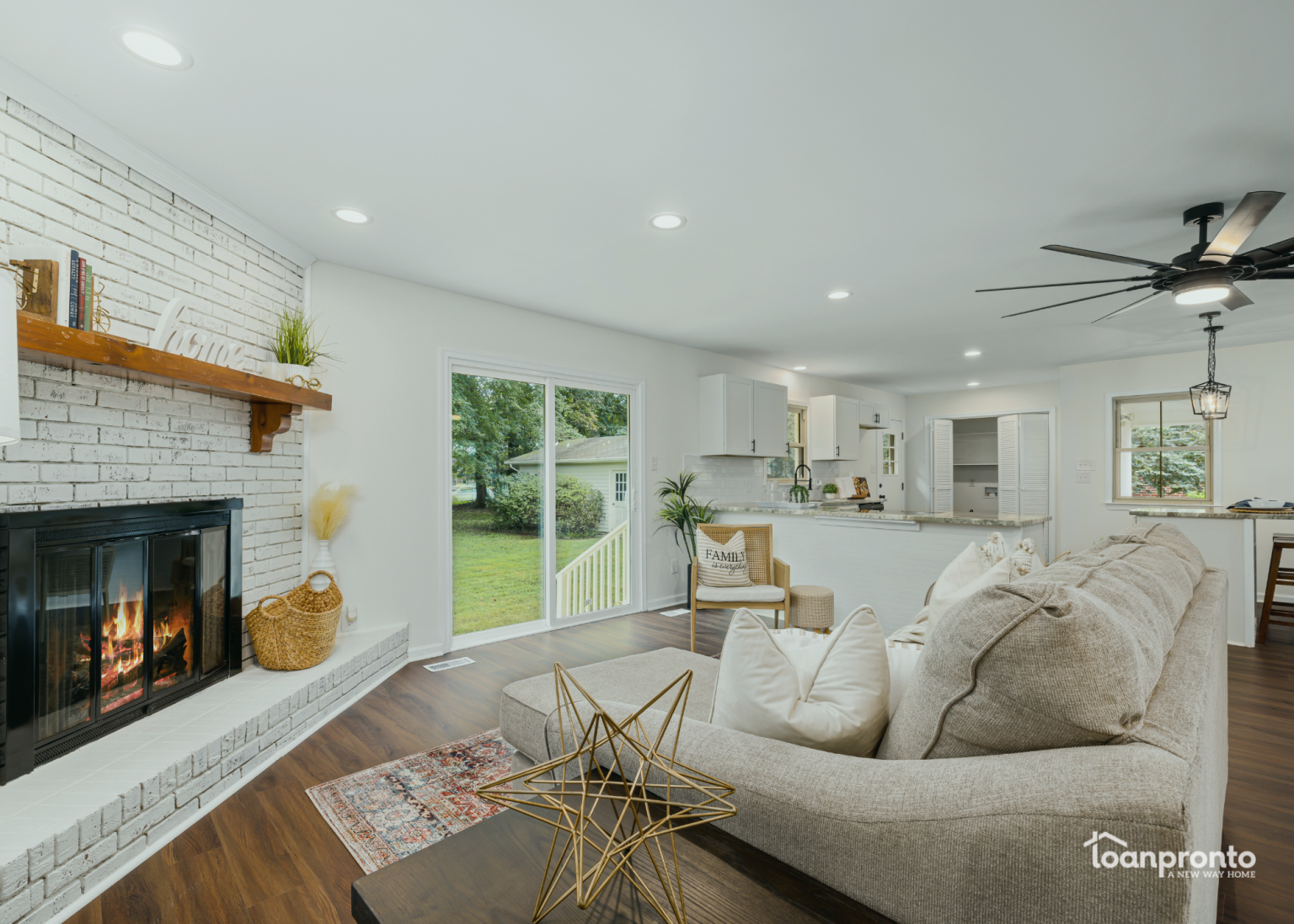Key Takeaways
-
Investment property loans require larger down payments and stronger credit than primary home loans.
-
There are multiple financing options, including conventional, DSCR, and portfolio loans.
-
Lenders often require cash reserves and proof of rental income for approval.
-
Loan Pronto offers investor-friendly loans and bundled insurance for a streamlined process.
Thinking about buying a rental property, flipping homes for profit, or building a real estate portfolio? The right investment property loan can help you achieve those goals—whether you’re generating passive rental income, financing a fix-and-flip project, or scaling your holdings. With multiple types of investment property loans available and stricter lending requirements than traditional mortgages, it’s essential to understand how to qualify and compare options. In this guide, we’ll walk through how real estate investment loans work, what lenders look for, and how to choose the best loan for investment property in 2026.
What Is an Investment Property Loan?
An investment property loan is a mortgage used to purchase real estate that isn’t your primary residence—usually a rental home, vacation rental, or commercial building. These loans allow investors to build wealth through monthly rental income, long-term appreciation, or short-term resale profits.
| Feature | Primary Residence Loan | Investment Property Loan |
| Minimum Down Payment | As low as 3% | Typically 15–25% |
| Credit Score Requirement | 580–620+ | 620–680+ |
| Cash Reserve Requirement | Low or none | 6–12 months of mortgage reserves |
| Interest Rates | Lower | Higher |
| Intended Use | Owner-occupied | Rental, resale, or commercial purposes |
Unlike owner-occupied loans, these require stronger financials. However, certain multifamily properties may qualify for more lenient terms if the owner lives in one of the units.
Types of Investment Property Loans
There are multiple ways to finance investment real estate. The best option depends on your financial profile, investment strategy, and timeline.
1. Conventional Loans
These standard mortgages can finance single-family or multifamily investment properties. Expect a minimum 15% down payment, a credit score of at least 620, and higher reserves for multi-unit properties. Fannie Mae and Freddie Mac provide backing for up to four units.
2. Home Equity Loan
If you own your primary residence, a home equity loan allows you to tap into its value. You receive a lump sum and pay a fixed interest rate, making it useful for funding a down payment or renovation.
3. HELOC (Home Equity Line of Credit)
A HELOC works like a credit card secured by your home. You can borrow multiple times during the draw period, but interest rates are typically variable.
4. Cash-Out Refinance
Refinancing your home to a higher loan amount lets you cash out some equity. This can be a smart move when mortgage rates are low and you need capital for a down payment.
Loan Options at a Glance
| Loan Type | Ideal For | Pros | Cons |
| Conventional | Long-term rental investments | Low rates, widely available | High down payment, strict requirements |
| Home Equity Loan | Leveraging existing equity | Fixed interest, lump sum | Risk tied to primary residence |
| HELOC | Ongoing access to equity | Flexible borrowing | Variable rates |
| Cash-Out Refi | Reinvesting home equity | Potential for lower rate | Closing costs, new loan term |
| FHA/VA Loans | Owner-occupied multifamily units | Low down payment (3.5% or none) | Must live in one unit |
| DSCR Loans | Income-based underwriting | Doesn’t require W-2 income | Higher rates, limited lenders |
| Portfolio Loans | Repeat investors or unique deals | Flexible terms | May come with higher interest |
| Hard Money Loans | House flipping | Fast funding, asset-based | High cost, short term |
| Private Loans | Borrowing from individuals | Custom terms, creative financing options | Relationship risk, lack of regulation |
| Commercial Loans | Properties with 5+ units | Designed for business use | Larger down payments, business docs |
| Bridge Loans | Quick closings, temporary needs | Speed, short-term solution | Expensive, short timeline |
How to Qualify for an Investment Property Loan
Qualifying for an investment mortgage takes preparation and documentation. Lenders scrutinize your financial background more than they would for a primary home.
What You’ll Need:
- Minimum 620–680+ credit score
- 15–25% down payment
- 3–6 months of mortgage payments in cash reserves
- Stable income and proof of employment
Documents to Gather:
- Two years of W-2s or tax returns (if self-employed)
- Recent pay stubs
- 2–3 months of bank and asset statements
- Lease agreements (for current rentals)
Get Preapproved Before You Invest
A mortgage preapproval shows sellers you’re a serious buyer. It also helps define your budget and estimate your monthly payments. Unlike prequalification, preapproval includes a credit pull and verification of income and assets.
Popular Types of Investment Properties
Real estate investors have several property types to choose from, depending on their goals and risk tolerance:
| Property Type | Description | Ideal For |
| Residential Rentals | Single-family, duplexes, small multifamily homes | Long-term cash flow |
| Vacation Rentals | Short-term rentals in tourist areas | Seasonal income |
| Fix-and-Flips | Renovated homes sold for profit | Short-term investors |
| Commercial Property | Office, retail, warehouse, or multifamily (5+ units) | Experienced investors |
| Raw Land | Undeveloped land for future resale or construction | Speculative investment strategies |
Signs You’re Ready to Invest
Before committing to your first or next property, evaluate your readiness:
- You have the down payment and cash reserves.
- Your credit score meets or exceeds lender minimums.
- You’ve researched market trends and rental demand.
- You’re prepared for property management responsibilities.
Take the First Step Toward Your Investment Goals
Investment property loans open the door to long-term financial growth. Whether you’re looking to expand your rental portfolio, flip houses for profit, or buy your first multifamily unit, we can help. Connect with a Loan Pronto mortgage expert today and discover the best financing option for your strategy.
FAQs About Investment Property Loans
No SSN required. Zero impact to credit. Your Information is never sold.



